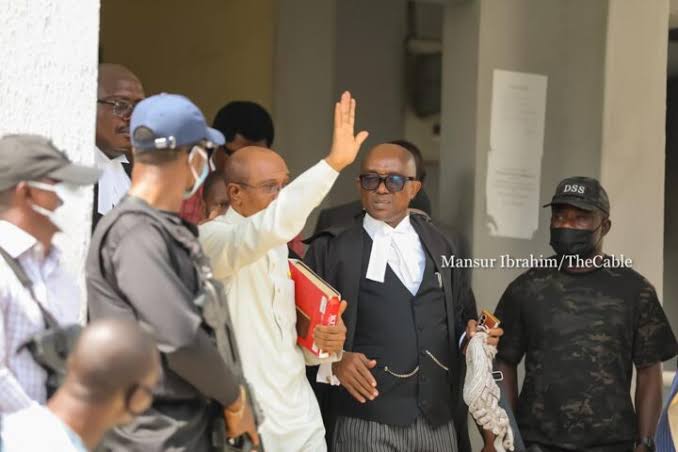IMF Warnings on Nigeria's Rising Fiscal Deficit

The International Monetary Fund (IMF) has expressed significant concern over Nigeria’s economic trajectory, forecasting a widening of the country’s consolidated fiscal deficit to 4.7 percent of GDP in 2025. This projection reverses a modest improvement seen in 2024 and significantly exceeds Nigeria’s own budget estimate of 3.9 percent. The IMF attributes this deterioration to deep-seated vulnerabilities, primarily Nigeria's heavy reliance on volatile crude oil revenues, which constitute approximately two-thirds of government income, compounded by escalating expenditure pressures.
Geopolitical threats and global market dynamics have severely impacted oil prices, with Brent Crude shedding 21.6 percent since January. As of a recent assessment, Brent was quoted at $68.5 per barrel, falling short of Nigeria’s 2025 budgetary assumption of $75 per barrel. Additionally, Nigeria’s oil production levels have been underwhelming, with average output at 1.5 million barrels per day (bpd) (excluding condensates), 11.8 percent shy of the 1.7 million bpd projected for 2025, and a drastic decline from historical highs due to crude theft and sabotage. The Fund's staff foresee lower production levels of around 1.45 million bpd and a global oil price average of $70 per barrel, further undermining federally retained earnings and budget implementation.
On the expenditure side, government wage bills and pension liabilities are projected to increase, while the much-heralded removal of the fuel subsidy has yielded lower-than-expected savings. Despite an anticipated 2 percent of GDP in savings, only N1.1 trillion (approximately 0.6 percent of GDP) was realized in 2024, partly due to reintroduced price caps and incomplete market liberalization. Furthermore, interest payments now consume over 100 percent of federal revenue, according to the IMF’s debt sustainability analysis, raising serious concerns about future borrowing and debt rollover risks. Nigeria’s general government revenue stood at a low 7.3 percent of GDP in 2024, significantly below the sub-Saharan African average of 13–15 percent.
In response to these challenges, the IMF has called for an urgent rethink of the government’s fiscal stance. Key recommendations include fully liberalizing the fuel market, implementing an automatic petrol pricing formula, and accelerating tax reforms such as unifying VAT administration, expanding excise coverage, and removing inefficient tax exemptions. The Fund also advised rationalizing capital spending by prioritizing high-economic-return projects, capping recurrent expenditure growth in non-essential sectors, and establishing a fiscal anchor like a debt service-to-revenue cap to guide financial discipline.
Despite the fiscal pressures, the IMF lauded the Central Bank of Nigeria’s (CBN) robust monetary reforms and efforts to strengthen the banking sector. The CBN, under Governor Cardoso, has taken critical steps to unify Nigeria’s exchange rate, eliminating distortions and restoring transparency by introducing a “willing-buyer, willing-seller” framework supported by a digital trading platform, B-Match. These reforms have significantly decreased the forex premium from over 60 percent to below three percent, boosted investor confidence, and led to a surge in forex inflows to $6.9 billion in Q1 2025. External reserves climbed to a peak of $40.9 billion at the end of 2024, providing over eight months of imports. The CBN also embarked on a recapitalization plan to significantly increase banks’ minimum capital by March 2026, aiming to enhance credit access and ensure banks can absorb future shocks. The Fund acknowledged the importance of maintaining a tight monetary policy stance until disinflation is firmly established and commended efforts to strengthen central bank governance and phase out capital flow management measures.
The successful signing of four tax reform bills into law—the Nigeria Tax Bill (Fair Taxation), the Nigeria Tax Administration Bill, the Nigeria Revenue Service (Establishment) Bill, and the Joint Revenue Board (Establishment) Bill—is seen as a crucial step toward improving revenue generation, though their full impact will materialize in the medium term. The IMF projects real GDP growth of 3.4 percent in 2025, supported by the new domestic refinery, higher oil production, and a strong services sector. Medium-term growth is expected to remain around 3.5 percent, bolstered by domestic reform gains. The Fund's endorsement of Nigeria’s monetary reforms marks a significant milestone, suggesting that with continued disciplined and transparent approaches from the CBN and complementary fiscal reforms, Nigeria is poised to unlock stronger growth, attract long-term investment, and achieve a more inclusive, stable, and diversified economy.








